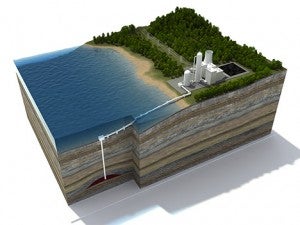Today, at the annual meeting of the American Association for the Advancement of Science in Vancouver, the Energy Institute at the University of Texas at Austin released a major report titled, “Fact-Based Regulation for Environmental Protection in Shale Gas Development.” The report’s conclusions are those of the authors, though Environmental Defense Fund (EDF) helped the University of Texas at Austin define its scope of work and reviewed drafts during the course of the project.
 What are the main conclusions? As has been the case in other inquiries, the University of Texas study did not find any confirmed cases of drinking water contamination due to pathways created by hydraulic fracturing. But this does not mean such contamination is impossible or that hydraulic fracturing chemicals can’t get loose in the environment in other ways (such as through spills of produced water). In fact, the study shines a light on the fact that there are a number of aspects of natural gas development that can pose significant environmental risk. And it highlights the fact that there are a number of ways in which current regulatory oversight is inadequate.
What are the main conclusions? As has been the case in other inquiries, the University of Texas study did not find any confirmed cases of drinking water contamination due to pathways created by hydraulic fracturing. But this does not mean such contamination is impossible or that hydraulic fracturing chemicals can’t get loose in the environment in other ways (such as through spills of produced water). In fact, the study shines a light on the fact that there are a number of aspects of natural gas development that can pose significant environmental risk. And it highlights the fact that there are a number of ways in which current regulatory oversight is inadequate.
The following conclusions are particularly important:
- Many reports of groundwater contamination occur in conventional oil and gas operations (e.g. failure of well-bore casing and cementing) and are not unique to hydraulic fracturing.
- Surface spills of fracturing fluids appear to pose greater risks to groundwater than hydraulic fracturing itself.
- Blowouts – uncontrolled fluid releases during construction and operation – are a rare occurrence, but subsurface blowouts appear to be under-reported.
- The lack of baseline studies makes it difficult to evaluate the long-term, cumulative effects and risks associated with hydraulic fracturing.
- Most state oil and gas regulations were written well before shale gas development became widespread.
- Gaps remain in the regulation of well casing and cementing, water withdrawal and usage, and waste storage and disposal.
- Enforcement capacity is highly variable among the states, particularly when measured by the ratio of staff to numbers of inspections conducted.
The report deserves widespread attention. But it is by no means the final word on these topics. Chip Groat, who led the study on behalf of the Energy Institute, plans to tackle additional topics in the future. These include air emissions from natural gas operations, induced seismicity and a field and laboratory investigation of whether hydrogeologic connectivity exists between the Barnett Shale and aquifers and other geologic units above and below the formation.
To read the complete report, visit http://energy.utexas.edu/













 Yesterday I was interviewed on an energy-related television show about natural gas drilling in the U.S. and some viewers thought I was too pro-drilling, others thought I was too anti-drilling. My reaction to that is: PERFECT! That was precisely my intention – to be a balanced voice in the discussion of hydraulic fracturing (HF). HF may be an important process to extract what may be a cleaner-burning fuel source for our country; but if it is developed, adverse impacts for gas drilling must be reduced to assure public safety and to protect the environment.
Yesterday I was interviewed on an energy-related television show about natural gas drilling in the U.S. and some viewers thought I was too pro-drilling, others thought I was too anti-drilling. My reaction to that is: PERFECT! That was precisely my intention – to be a balanced voice in the discussion of hydraulic fracturing (HF). HF may be an important process to extract what may be a cleaner-burning fuel source for our country; but if it is developed, adverse impacts for gas drilling must be reduced to assure public safety and to protect the environment.